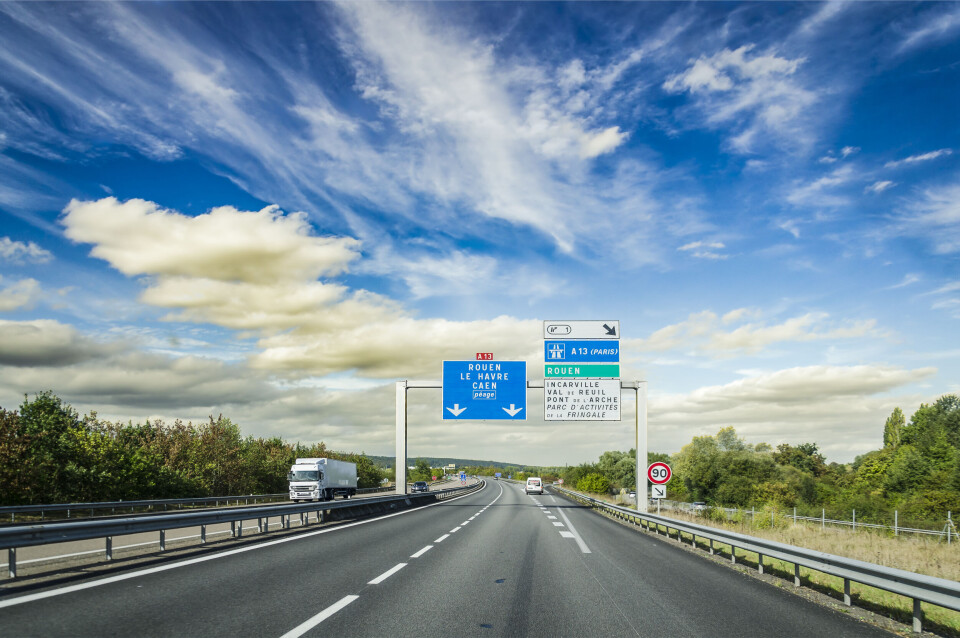-
Why you can contest a speeding fine when driving to Italy from France
A new initiative has discovered that the majority of Italian speeding fines may be legally void
-
Speed cameras to verify car insurance in severe cases
Penalties for speeding more than 50 kph over the limit have also been stepped up
-
Speed cameras 'set to flash visibly again' as France's radar network expands
The new system will help to educate drivers, officials believe
French PM requests new study into reducing motorway speed to 110km/h
The idea was dismissed last year but has now resurfaced and is being cited as a way to save drivers money. A petition of opposition has been launched

French Prime Minister Élisabeth Borne has asked for a study to be carried out into the potential impact of reducing the motorway speed limit from 130km/h to 110km/h, a year after the idea was rejected.
This measure was initially proposed by the Convention Citoyenne pour le Climat (Citizens Convention for Climate) during its 2019-20 assembly, but later rejected in the context of a population voicing opposition to the introduction of an 80km/h limit on departmental roads.
Read more: Speed limits switch back to 90km/h on more French roads
Read more: MAP: French departments where roads are back to 90km/h speed limits
The suggestion was also put to one side because it would have cost €16million to change all the signs on the motorway network.
However, the French agency for ecological transition, Ademe, has now been charged with assessing the potential advantages and disadvantages by Ms Borne.
Ms Borne previously said that she is “personally” in favour of the measure, although she acknowledged that she was not one of the people who would be affected by it on a daily basis.
"À titre personnel", Elisabeth Borne se dit favorable à la réduction de la vitesse à 110 km/h sur les autoroutes pic.twitter.com/1zFNbbcxTG
— BFM (@BFMTV) June 22, 2020
She has also said that: “Awareness of ecological issues is increasing but we must not take measures which are experienced in a negative way by people in France. We need cooperation to carry out a radical ecological transition.”
Ademe will consider how drivers could be asked to pay for toll roads with a 110km/h limit, when other non motorway double-lane roads offer the same speed for free, and whether the change could mean greater congestion.
It will also consider how much motorists could save on fuel by reducing their speed, and how residents living near the motorway could observe a marked drop in noise levels.
#Ecologie : la vitesse bientôt abaissée à 110 km/h sur autoroute ? "Les petits gestes vont mener à des changements", selon @lea_falko, "vous rêvez", lui répond Pierre Chasseray @40MA dans #RTLMatin pic.twitter.com/mYcg2B9QjP
— RTL France (@RTLFrance) September 7, 2022
How much longer would a journey take at 110km/h?
Experts have said that reducing your speed by 20km/h will extend an hour-long journey by four to eight minutes, so a three-and-a-half-hour trip would take four hours.
A shift from 130km/h to 120km/h rather than 110km/h might therefore be more acceptable to drivers, and would match the speed limits imposed on similar sections of road in countries such as Switzerland.
In Sweden, the motorway speed limit is already 110km/h on many roads, and in the Netherlands it is 100km/h during the day.
How much money could drivers save?
Research body Asterès has found in a recent study that drivers could save €149 on average each year by reducing their speed to 110km/h on motorways and 80km/h on departmental roads.
By switching to 110km/h on motorways, motorists would cut their fuel consumption by 25%, and the resulting saving would make up €125 of the total €149 not spent.
Read more: French fuel discounts: long queues form at Total petrol stations
‘We must mobilise to oppose this’
Pierre Chasseray of driving association 40 millions d’automobilistes commented: “First they wanted to reduce the speed limit to 110km/h on motorways for road safety. But the facts were unwavering: the motorway network is the one on which we drive the fastest, but also where the fewest accidents occur.
“They then wanted to reduce the speed limit to 110km/h on motorways for the environment [...] but the massive and rapid mobilisation of drivers through the 40 millions d’automobilistes petition reminded them of the fiasco of 80km/h.
“They are therefore now trying to bring the speed limit reduction back into the debate [...] by unscrupulously brandishing the fuel price argument.
“As if drivers who are heavily affected by fuel price rises needed a new speed limit reduction which they do not want, rather than concrete and sustainable action on the root of the problem: the cost of a full tank.
“We must mobilise to oppose this and demonstrate that no, public opinion is not changing, contrary to what certain dishonest organisations might claim.”
40 millions d’automobilistes is therefore urging drivers to sign its petition against the 110km/h limit.
Related articles
Semi-autonomous cars now permitted on some French roads
Explainer: what are the rules on licence-free cars in France?
French MP proposes allowing used cooking oil to be legal car fuel
























